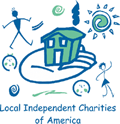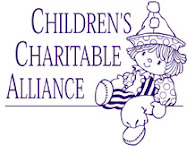Thursday, May 20, 2010
BOP Facilitates 20K Grant for Water Catchment System
BOP's Karen Schuster is the Keynote Speaker at Dominican
I believe I was asked, in part, to speak at your induction ceremony because of the partnership Dominican University Department of Nursing and I have forged to develop a commitment to international public health nursing in the global community. More importantly, though, I believe this to be an opportunity to inspire your service to others by sharing my story of what a small seed of faith put into action can accomplish.
In the summer of 2008 I was calmly sitting at the 8am mass at St Patrick parish in Larkspur, when a visiting priest, Father Simon Taabu, got up to speak about his community in Rulenge Tanzania. He talked about a community without potable water, where his 75 year old mother walks five miles to fill her jars with water that is still not safe to drink. He described diocese orphanages filled with children whose parents were victims of AIDS and malaria. He said they need things so basic as paper for school, a tin of band aids, a box of infant formula. I can’t exactly explain it, but at that moment Fr Simon was speaking directly to me – he touched my heart. After mass I sought him out and asked what I might do to help. He responded by telling me whatever you do will help. And that launched the creation of the Bridges of Promise project and the adventure over the last year and a half that I’m about to share with you.
First I’d like to give you a short introduction to Tanzania. Tanzania is in Equatorial East Africa. In this region of Africa, natural resource use is primarily based on mining for minerals, ore, and coal, as well as for natural gas, diamonds and other gemstones.
4.23% of the land is estimated to be arable, with about 1.16% currently cultivated with permanent crops. Although that seems a small percentage, severe environmental issues exist, including: soil degradation, deforestation, and desertification. More largely populated, coastal areas, such as the major seaport of Dar es Salaam, benefit from hydropower and other modern technologies, but little to no national or governmental infrastructure exists to offer support to remote regions, districts or communities.
The Rulenge diocese is in the Kagera District on Tanzania’s western-most side, between Lake Victoria and boarders of Uganda, Burundi, and, Rwanda, placing the Rulenge community in just about the middle of equatorial Africa – and about as remote as one could get.
It is a region where the local economy is mainly agriculture and barter systems, where construction is still done by hand, and electricity, if any exists at all, is produced for short periods of time with small, local generators. School is not free, and depending on age and grade, tuition averages $600 per year. People earn less than $1 a day, gas costs $9 per gallon, and the nearest major hospital in Biharamulho is 7 hours away by dirt road.
There are about 250,000 people that live in the region where orphanages care for infants and children. The Rulenge Diocese Orphanage cares for about 50 children, and the Sisters of St Teresa of Calcutta operate an orphanage that cares for about 70 infants.
Because of the severe poverty of these communities, orphanages lack the funds to maintain education and infrastructure or provide for adequate nutrition and public health needs.
Water is drawn from open springs where surface water is naturally polluted with silicates and other pathogens.
With the Rulenge community faced with such widespread need, and lacking literally everything, my Bridges of Promise co-founder, Sandra, and I first made a commitment that 100% of any funds raised would go directly to help the Rulenge people, and then worked to identify and categorize three primary areas on which to focus.
Education ~ Public Health ~ Reliable Potable Water
Since education is the passport to the future we started our partnerships by focusing on funding tuition for Rulenge’s orphans and raising money to build crucial infrastructure projects for schools.
Our goal is to ultimately support all orphans of the Rulenge diocese to attend school, and while the number varies from year to year, we are aiming to provide tuition to about 50 children. Bridges of Promise, along with our partner, West River Missions, VT has generated sponsors for about 33 students so far. We are still working on tuitions, though, since many students still need sponsors.
Our first infrastructure project was to raise funds to build 5 latrines for the St Thomas Primary School in Rukora, about 120 miles away from Rulenge. There were 90 kindergarteners and only 1 latrine at the school, so you can imagine the need for more facilities. Via email and electronic transfers, we worked with the school principal to begin construction following our first fundraising event, a Cookie Party for the Holidays in Dec 2008. Building continued as we forwarded donations from Portraits in the Park, Birthday Parties, Tea Socials, Pancake Breakfasts and Bake Sales. By Dec 2009 the Latrine Project was fully funded, and final construction was completed in Feb of this year.
Since personal and public health is essential to the wellbeing and growth of an individual, we knew it would be critical to engage medical professionals to help improve conditions in Rulenge. In Tanzania infant mortality is about 16.5% and life expectancy is 45.9 years. Malaria, AIDS and nutrition related issues are among the primary health concerns.
In March 2009, I walked into the Dominican Department of Nursing for the first time to meet Luanne Linnard-Palmer and Olivia Catolico, and present them with a vision of a partnership that would raise funds to help provide public health and medical supplies, and that ultimately would send nursing students to volunteer in the Rulenge community.
Timing could not have been more perfect! Luanne and Olivia explained that the Department of Nursing had just received a mandate from the university to develop a program that would reach out to underserved communities internationally. And from that meeting a partnership was born to connect the Dominican University Department of Nursing with the people of Rulenge Tanzania. Based on the core values of the department of nursing, a project professionally competent, culturally sensitive, and ethically grounded – one dedicated to transforming lives – was created as public health partners for a global community.
Luanne, Olivia and the Department of Nursing first identified the need to supply the Rulenge Orphanage with bed nets to control the spread of malaria. Their innovative plan was to sell Acholi bead jewelry, made by Ugandan women, and to use the proceeds for bed nets, benefiting not only the orphans in Rulenge, but also the Ugandan women who worked to make the jewelry. By late 2009, we wired funds to purchase 50 bed nets for the Rulenge Orphanage.
In 2010 the goal expanded to continue to raise funds to supply shoes for children to counteract the effects of foot fungus, and to provide hand sanitizer stations to improve hygiene.
In spring of this year, selected nursing students at Dominican University have also been given the opportunity, as part of the Song Brown Grant, to develop a culturally sensitive Neonatal Nutrition Primer to assist in teaching proper care and nutrition to care givers and mothers. And an additional grant project has been developed for nursing students to research the feasibility of a reputable powdered infant formula manufacturer supplying the Rulenge Orphanage on a regular basis to improve early childhood nutrition.
These and future projects have offered, and will continue to provide valuable preventative and supportive health care for the Rulenge community.
Looking to 2010 and beyond, the Department of Nursing is also committed to direct involvement in the global health care community. International public health curricula has been incorporated into the nursing program and ultimately a volunteer community service project involving Dominican nursing students and faculty directly on the ground in the Rulenge Tanzania will launch, offering academic credit for participation.
We are currently working with Dr Gresmus at the District Hospital in Biharamulo to identify priorities and logistics for volunteer nursing teams to conduct workshops in:
- Health education
- Maternal and child health
- Promotion of adequate supplies of safe water
- Nutrition advice and guidance
- Immunizations against major infectious diseases
- Prevention and control of local endemic diseases
By presenting programs at the Biharamulo Hospital, volunteer nurses will also be helping rural communities and clinics improve their services. For example, the community of Rukora, about 6 hours away from Biharamulo, is completing construction of a small, local clinic. But in order to operate trained, capable staff is still needed. Workshops in Biharamulo will provide the opportunity for extended education and staff development to serve local communities, like Rukora.
It’s our goal to have the first service projects and volunteers in place at the Biharamulo Hospital by late 2011. Teams will provide workshops for local nurses to enhance knowledge, train neighborhood liaisons to promote public health, and support understaffed medical personnel to improve patient care.
Each one of you is invited, no, called to become a part of your Dominican University’s partnership with Rulenge Tanzania. Go to your faculty, your teachers, your nursing administration staff – ask how you can become involved with this project and help one of the most underserved communities in the world. Doing so would be living the core of the mission of Sigma Theta Tau.
Water is the most abundant molecule on Earth – more than 70% of the Earth is covered with water. Yet in western Tanzania the surface water is not drinkable. In addition to being polluted with naturally occurring silicates and bacteria, poor land use and agricultural practices have exacerbated contamination.
Bringing reliable, potable water to Rulenge will be the biggest project we undertake. This year we have submitted proposals to WaterHope, a small, grassroots non-profit organization for a rainwater catchment system for the clinic in Rukora, and for deep wells in the region. We are also in discussions with a drilling company that does humanitarian work in Africa about organizing a digging teams, training local people to maintain wells, and helping to set up community associations to manage water services. Breaking News! We just learned Friday that WaterHope has accepted our proposal for Rain Water Catchment System for the Rukora clinic and soon the clinic will have a water supply. We have yet to fully realize our goal of sustainable wells, but remain hopeful that it’s merely a matter of time.
It’s been an extraordinary year and a half, one that I never expected. And I am very happy to have been able to share it with you.
As you are welcomed into the Sigma Theta Tau and Rho Alpha communities, I applaud the current and future roles you now play and will play as clinicians, administrators, researchers, educators and health policy analysts. May you live out your roles with integrity, intelligence, caring and courage.
And now, I’d like to ask you to take a moment and close your eyes and think about faith – whatever faith means to you. Take a moment and visualize it, until you can see it in your mind. Then move that faith from your mind to your heart, and feel it – let it grow. And when you feel its strength and purpose – act. It’s through your action that you will accomplish the remarkable."




